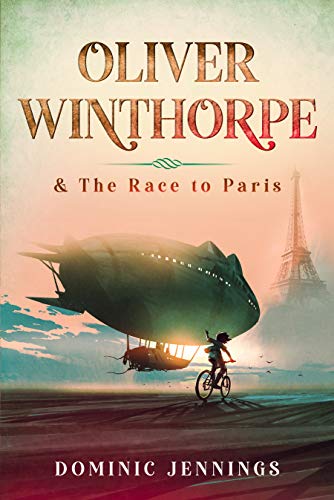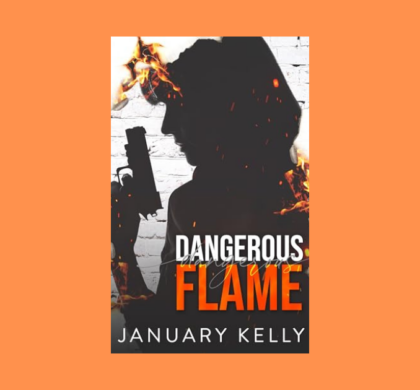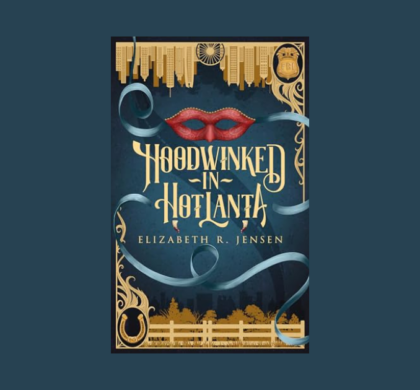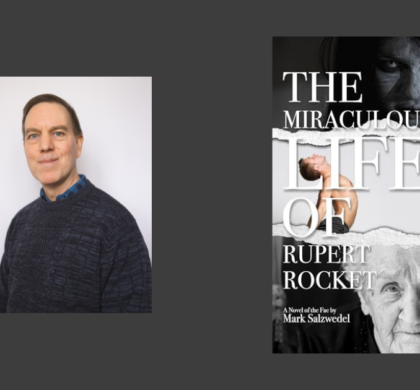Interview with Dominic Jennings, Author of Oliver Winthorpe & The Race to Paris
14 Jul 2020
What can you tell us about your new release, Oliver Winthorpe & The Race to Paris?
First and foremost, it’s a book written to inspire readers to look at engineering and science in a different light. Oliver Winthorpe is a fourteen-year-old boy in Edwardian London who discovers the Race to Paris, a race that the creators hope will inspire Britain’s inventors to succeed where so many before them have failed: to create the world’s first manned flying machine. With both a secret family past and a group of unlikely friends to help him on his way, he builds a pioneering airship and enters the race with only one thought in mind: to win. It’s a story that combines my passion for engineering, travel and adventure, blended into a world that is both fictional and real, at a time when Britain led the world but also faced real questions about equality. And it’s the beginning of a series that will see Oliver travel around the globe, working with some very famous inventors in the hope of unlocking the secrets of an organisation that goes back centuries. And if he can realise his destiny, he’ll create something that will change the world, and history as we know it, forever.
What or who inspired you to become an author?
I’ve written stories and poems since I was five years old, but in the last few years I turned to writing in search of a creative hobby that counter-balanced my professional life. The more I wrote, and the deeper I became entangled in the creative world I’d envisaged, the more difficult it was to stop. It’s progressed from there really.
What’s on your top 5 list for the best books you’ve ever read?
Great question. My book list is a curious combination of fiction and non-fiction that has helped me get to this point in my life. For that reason, the most important book I’ve ever read is Vagabonding: An Uncommon Guide to the Art of Long-Term World Travel by Rolf Potts, followed closely by The 4-Hour Workweek by Tim Ferriss. Third on the list is a recent piece of fiction by an author whose writing style is a benchmark for me; A Gentleman in Moscow by Amor Towles. It has the potential to be quite a limiting plot, which makes it an even greater achievement in my eyes, because it covers every emotion and ends wonderfully. Fourth on the list is Dubliners by James Joyce. My grandparents were Irish, and Éire runs through my veins, but the book was also valuable for me as a piece of writing. Joyce’s ability to create real, believable characters that are so clear it’s like they’re sitting next to you, and to then weave them into such wonderfully visual everyday moments is, again, something I’ve benchmarked for myself as an author. And rounding off the list is Harry Potter and the Philosopher’s Stone by J.K. Rowling. I can still remember reading those first pages as a twelve-year-old boy during my summer holidays and being transported, so vividly, to a magical (pardon the pun) world that I never wanted to leave. It’s still a wonderful example of fantasy fiction.
Say you’re the host of a literary talk show. Who would be your first guest? What would you want to ask
Another great question! I’d have to say Ernest Hemingway. And the question I would ask is: “Based on your life experience, why do you think fiction writing is so important? He’s a man who lived through a lot of harrowing experiences and who suffered emotionally. So I’d like to understand why he valued fiction, both as a writer and reader.
What’s your favorite thing about writing?
My favourite thing about writing is escapism. I am where I write. The nearest equal I’ve ever found to writing is within the notes of good music.
What is a typical day like for you?
I’m afraid there’s no such thing! But if the last twelve months are anything to go by, and if I can achieve my dream of becoming a full time author, then it would certainly see me wake up in a foreign city I’ve never visited before, preferably around 7am. My day would begin with some yoga exercises to stretch the post-sleep muscles, followed by a black coffee from my Moka pot I bought whilst working in Modena, Italy. After a small breakfast, I would want to be out of my apartment before 9am and in a local cafe shortly afterwards. However, If I’m somewhere new, I usually catch a tram or other public transport to a new part of town and walk the narrow streets until I’ve found a cafe that appeals. Then I bury my head in my laptop for around three hours and progress as much as I can with the book. A couple of cappuccinos are always needed, and maybe a piece of banana bread or a croissant as a treat if it’s going well. After lunch, I would spend a few hours exploring, taking photographs and writing some more, even if it’s on a park bench with my notepad. I always dinner early, around 6pm, and then in the warmer months I will race to a viewpoint with my tripod and camera for the sunset, or perhaps some nighttime shots. And then of course, at weekends, maybe a beer or a glass of wine in a local bar with my trusty Kindle. It all depends where I am in the world really.
What scene from Oliver Winthorpe & The Race to Paris was your favorite to write?
Oooh, I like this question. I would have to say… the early moments of the race, when London’s sky is filled with flying machines of all shapes, sizes and styles. It was this image that first triggered the idea for the book, and I spent considerable time ensuring that the reader could really feel the significance and the drama of those few minutes. The sense of freedom Oliver felt as the airship rose into the sky and the world shrank below is something everyone should try and experience in their lifetime.
Do you have a motto, quote, or philosophy you live by?
Do it now, whilst you can. It sounds morbid, but it’s actually very positive; and it’s changed my life immeasurably in the last four years.
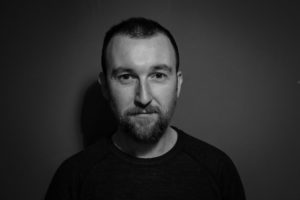
Dominic Jennings is the author of the new book Oliver Winthorpe & The Race to Paris.
Connect with Dominic
Author Site
Facebook
Buy The Book
Sign up for our email and we’ll send you the best new books in your favorite genres weekly.
